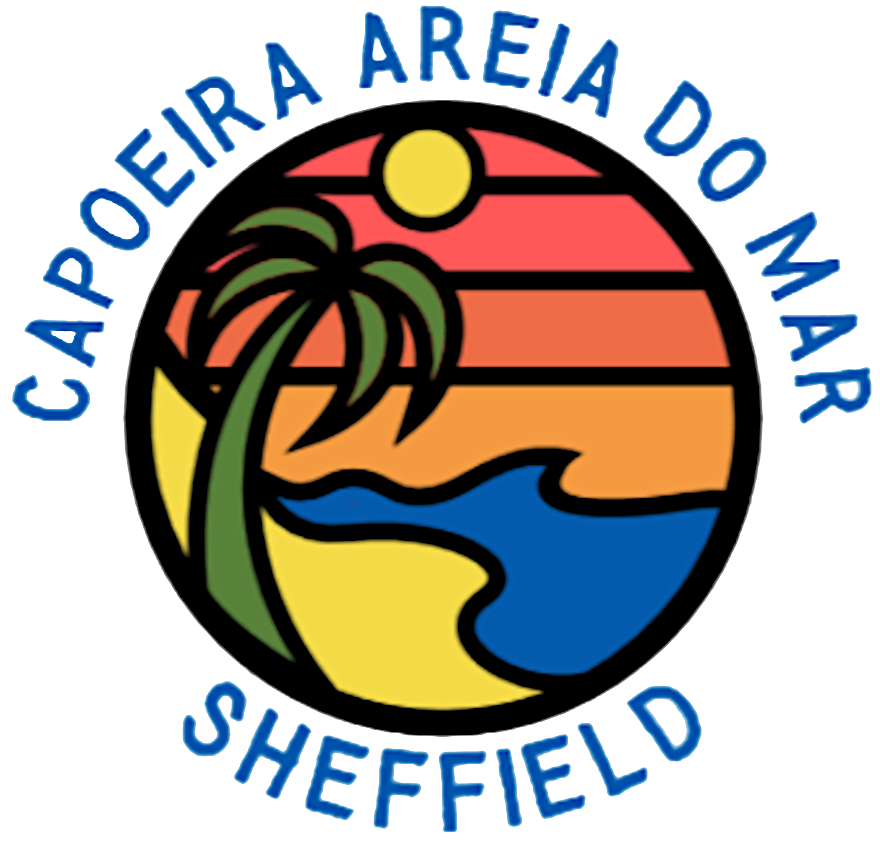Angola eee Angola aaa
O berimbau ta me chamando eu vou jogar
Angola ê angola ê
Angola eee Angola aaa
O berimbau ta me chamando eu vou jogar
Jogo de dentro*, jogo de fora**
Cavalaria†, meu barravento††
Jogo de dentro, jogo de fora
Cavalaria, sinhô São Bento
Angola ê angola ê
Angola eee Angola aaa
O berimbau ta me chamando eu vou jogar
Angola eee Angola aaa
The berimbau is calling me, I’m going to play
Angola eh Angola eh
Angola eee Angola aaa
The berimbau is calling me, I’m going to play
The inside game, the outside game
Cavalry, my swirling wind
The inside game, the outside game
Cavalry, Saint Benedict (Orixá Omulu)
Angola eh Angola eh
Angola eee Angola aaa
The berimbau is calling me, I’m going to play
Jogo de dentro*
Close and tight game, circling around the opponent. Players stay low, and as close to each other as possible.
tsh#tsh# dim dom dim
Jogo de fora**
Angola game which characterises the standing game in which players cannot place their hands on the ground.
tsh#tsh# dim tsh# dom
Cavalaria†
During the Republic in which capoeira was prohibited, this toque was used as to inform of the arrival of mounted police ‘the cavalry’.
tsh#tsh# dom tsh# dom / tsh#tsh# dom dim dom
Barravento††
A loose acrobatic game in which Capoeiristas demonstrate their skills.
tsh# domtsh domtsh domtsh
tsh# domtsh domtsh
(tsh#) dom dom dom / dim dim dim
dom dom dom / dim dom dim dom
Barravento comes from the word barlavento, a nautical term meaning ‘the side from which the wind blows’. It can also signify a person losing their balance, as though feeling dizzy.
In certain candomblé lineages, it is the name of a fast percussion rhythm and also the shaking of the body that one experiences just before being completely possessed by one’s orixá


